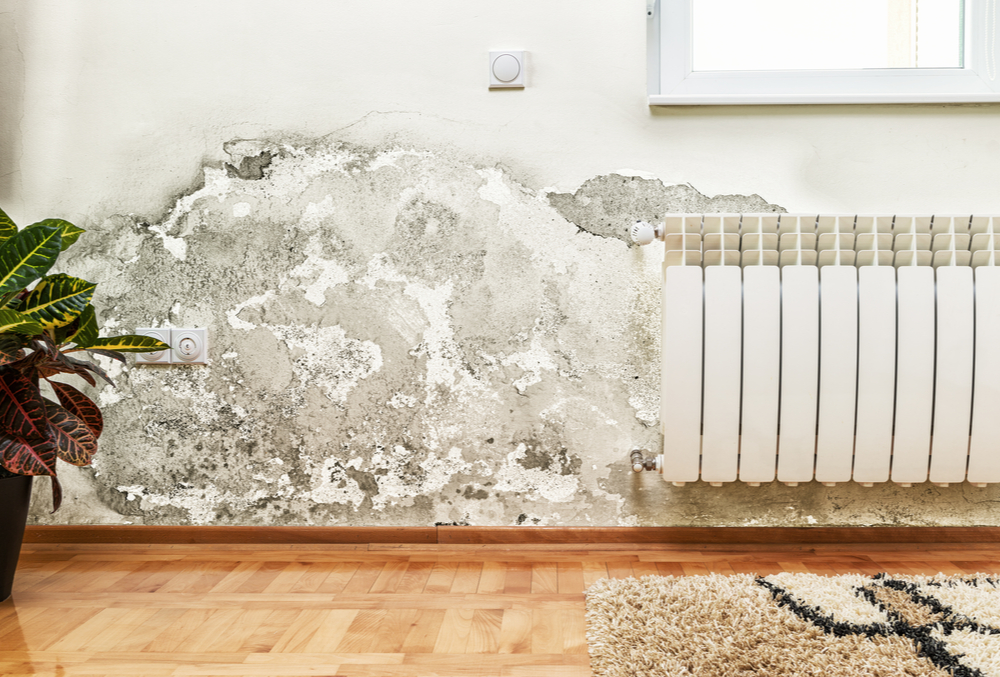How to Minimise Condensation and Damp
Unfortunately, condensation and damp build-up is something that landlords can face from time to time. Tackling the problem can be a challenge if you don’t know what to do. Plus, you need to give constructive advice to a tenant while trying to evaluate.
The majority of landlords put all their efforts into creating a homely rental, but condensation and mould can often ruin this. If you need advice on how to deal with condensation, damp and mould, keep reading for handy advice!
What is condensation and damp?

Condensation results from high levels of humid air that gets trapped in a property and is unable to escape due to poor ventilation. In most cases, condensation emerges from everyday living, for example, from boiling kettles and running baths. The warm air in our homes can only hold so much moisture before it condenses on cold surfaces. One in five houses in the UK suffers with condensation.
Damp can take on several forms. Rising damp is when water from below a property rises up through bricks and mortar. Penetrating damp is caused by issues like leaking guttering, which allows water to seep into the property. However, another huge cause of damp is actually condensation, which often results in surface mould. If a damp problem is not solved it can cause mould to grow, which reduces the value of the property and can also adversely affect people’s health.
Tips for reducing condensation
So, if you want to avoid damp and mould a good place to start is by reducing condensation. The first thing to do is try to keep the house ventilated. Improving ventilation will help to reduce the condensation issue, but this is easier said than done. With energy efficiency becoming an increasing priority, triple glazing windows and insulating rooms has become the norm. Unfortunately this can encourage condensation to develop and mould to grow. As a landlord it is important to find a happy balance between insulation and ventilation. Devices such as PIV units (Positive Input Ventilation) can provide clean filtered air through the entire property and help get rid of moisture.
Your tenant can also help you reduce moisture build up in your property. Here is a list of things you can ask them to do in order to reduce condensation and mould in the property:
- Opening windows
- Avoiding drying clothes on radiators
- Pputting lids on pots when cooking
- Closing the door after you shower (for a short time)
- Wiping away excess moisture
How to reduce damp

The most important thing to address when reducing and treating damp is the origin of the moisture. Once you’ve located this, you’re already halfway to solving your problem. For rising damp the best solution is often having a damp proof course installed, which the majority of modern houses already have. If you have one and are still struggling to contain the damp, check it is working correctly.
For treating penetrating damp you also need to locate the source of the moisture. Filling any air gaps in walls or having a cavity wall is often enough to keep penetrating damp at bay.
Talking to your tenants about condensation, damp and mould
It is your responsibility as a landlord to address any problems with regards to condensation, damp and mould in your property, but talking to your tenants can help you reduce the signs. Ensure you explain to your tenants the aforementioned points about reducing condensation and make sure that they know to contact you as soon as they notice any signs of mould or damp.
As a landlord it can be tricky to know who is responsible for solving issues relating to condensation, especially as it is often due to the tenants lifestyle. However, it is your responsibility to ensure that your property is safe to live in and this includes controlling damp and mould.